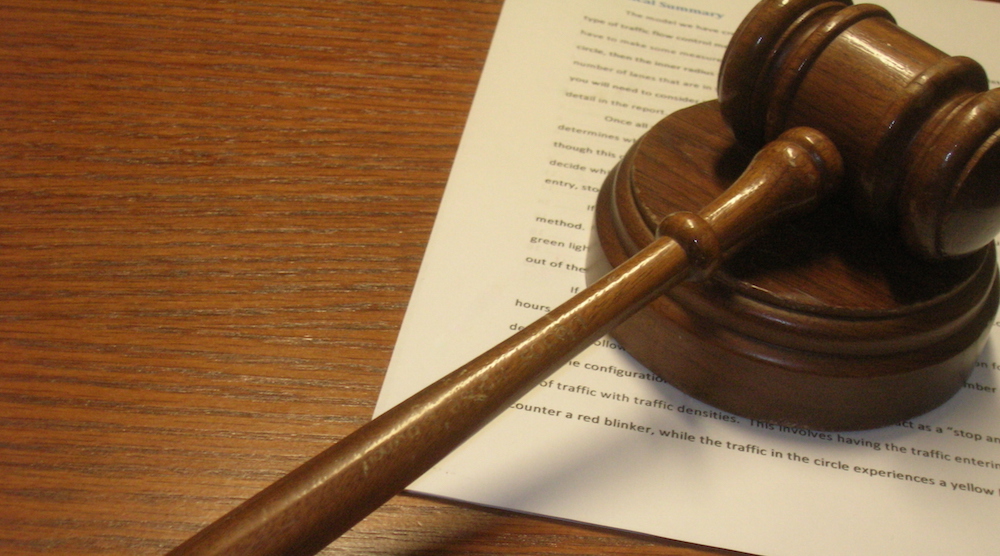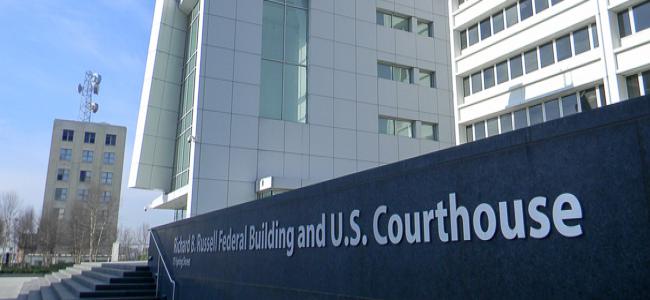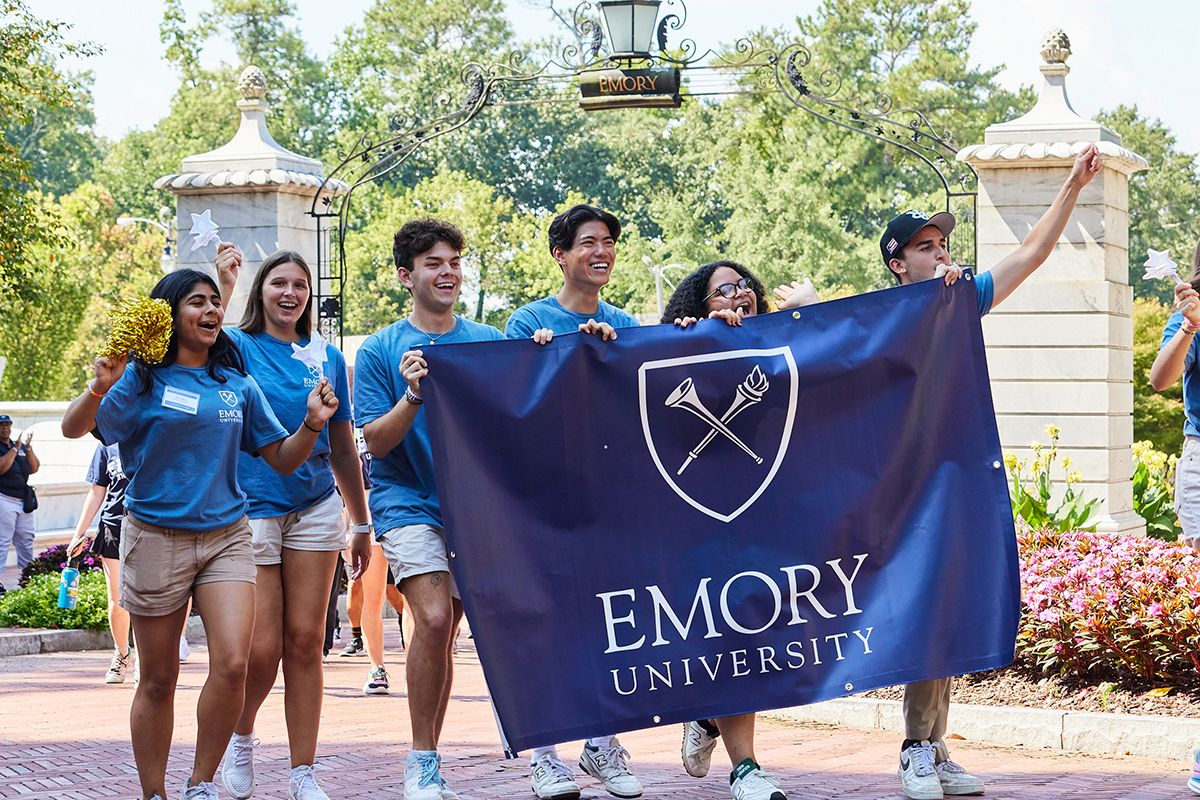Benjamin Craver, a junior at Emory University, has filed a lawsuit against the school after being suspended for creating an AI-driven study tool called Eightball.
The suspension comes as a surprise, given that Craver and his co-founder had previously won a $10,000 prize in the university’s own pitch competition for the same tool.
The Creation of Eightball

Eightball, an AI-powered study aid, was developed by Craver and his unnamed co-founder in the fall of 2022.
The tool allowed students to upload course materials to a private server, which would then generate study materials like flashcards and practice exams.
The innovative nature of Eightball caught the attention of both students and faculty at Emory.
Many saw it as a game-changer in the world of education, leveraging the power of AI to help students learn more effectively.
As Craver explained in a now-removed feature on the business school’s website, the goal of Eightball was never to “do their homework or be a cheat sheet.”
Instead, it was designed to be a genuine study tool, helping students better understand and retain course material.
Emory’s Initial Support

Eightball’s potential did not go unnoticed by Emory University.
In March 2023, Craver and his co-founder entered the tool into the university’s business school pitch contest, where it won first prize and a $10,000 award.
The university celebrated the duo’s achievement, featuring them in the school newspaper and on the business school’s website.
This positive press seemed to confirm that Emory saw value in the AI-driven study tool and supported the students’ entrepreneurial efforts.
“Emory encouraged the students’ development of the study tool — and even celebrated it.” – Court records
The Honor Council’s Accusations

Despite the initial praise, the tide turned against Craver and his co-founder in November 2023.
Emory informed them that Eightball might violate the school’s honor code due to its connection to Canvas, a server containing course materials.
In January 2024, the Honor Council conducted a hearing, calling two Emory employees as witnesses.
They expressed concern over Eightball’s integration with Canvas, labeling it a “major concern.”
Craver maintains that he and his co-founder had been transparent about the potential Canvas link during the pitch competition in the spring of 2023.
He also noted that only a small number of students had actually linked their Canvas accounts to Eightball.
Lack of Evidence
Throughout the Honor Council’s investigation, neither Craver nor his co-founder were accused of cheating.
Moreover, no evidence was presented to suggest that any students had used Eightball to cheat.
In his lawsuit, Craver states that he was not asked about his intentions during the hearing.
He argues that “none of the witnesses at any point described how Eightball could be used to cheat or presented any evidence that anyone had in fact used Eightball to cheat.”
This lack of evidence is a key point in Craver’s case against the university.
He believes that the suspension was unjust and not based on any concrete proof of wrongdoing.
The Honor Council’s Decision
Despite the absence of evidence, the Honor Council concluded that “Eightball is based on a blueprint which incorporates the ability to cheat.”
They suggested that Craver and his co-founder knew it could be used for cheating and “built it with intent.”
The council initially recommended a one-year suspension for Craver and expulsion for his co-founder.
However, the university later reduced the discipline to a semester suspension for both students.
Craver argues that the Honor Council’s decision was baseless and that he was never given the opportunity to defend his intentions during the hearing.
Consequences for Craver
The suspension has had significant consequences for Craver.
It affects his ability to graduate with his class, write an honor’s thesis, and apply to law school.
He believes that having a suspension on his permanent record could have long-term impacts on his future.
In an interview with The Wall Street Journal, Craver expressed his shock at the university’s decision: “A suspension goes on your permanent record forever, basically. I would always have that mark of academic dishonesty, which is upsetting.”
Craver’s lawsuit seeks to have the suspension reversed and removed from his record.
He believes that the university acted unjustly and wants to clear his name.
The Lawsuit

On Monday, Craver filed a 27-page lawsuit against Emory University in Atlanta federal court.
The suit details how Eightball went from a celebrated AI tool to one that the school demanded be shut down.
Craver is seeking a jury trial and damages of at least $75,000.
According to The Wall Street Journal, his parents are funding the legal action.
The lawsuit represents Craver’s effort to hold the university accountable for what he believes to be an unjust punishment.
He hopes that the court will side with him and force Emory to reverse its decision.
Broader Implications

The case of Eightball and Emory University highlights the complex relationship between AI technology and academic institutions.
As AI tools become more prevalent in education, universities will need to grapple with how to regulate their use and ensure academic integrity.
The case also raises questions about the balance between fostering student innovation and enforcing honor codes.
Emory’s initial celebration of Eightball followed by the suspension of its creators demonstrates the tension that can arise when new technologies challenge existing rules and norms.
As AI continues to advance, universities will need to adapt their policies and procedures to keep pace.
They will need to find ways to encourage student entrepreneurship while also maintaining the integrity of the academic process.
Emory’s Response
Emory University has declined to comment on the case, citing the pending litigation.
However, the school has taken action to distance itself from Eightball and its creators.
The business school’s webpage that once highlighted Eightball and its founders has been removed.
This suggests that the university is seeking to minimize its association with the tool in light of the Honor Council’s findings.
It remains to be seen how Emory will respond to the lawsuit and whether it will defend its decision to suspend Craver and his co-founder.
Conclusion
The case of Benjamin Craver and Eightball is a complex one, with no easy answers.
On one hand, Craver and his co-founder created an innovative AI tool that had the potential to revolutionize the way students study.
On the other hand, the university has a responsibility to uphold its honor code and ensure that students are not using technology to cheat.
The outcome of the lawsuit could have significant implications for the use of AI in education and the way universities handle student innovation.
If Craver prevails, it could set a precedent for students to challenge university decisions related to AI tools.
If Emory wins, it could embolden other schools to take a harder line against AI-driven study aids.
Regardless of the outcome, the case highlights the need for universities to proactively address the challenges and opportunities presented by AI technology.
As AI becomes more sophisticated and ubiquitous, schools will need to find ways to harness its potential while also protecting the integrity of the academic process.

